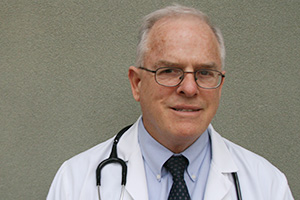
Sitting across from me was a middle-aged man. He was sad but not defeated. He met my gaze, and told me his story quietly. His wife had been unfaithful and now she wanted to come back. He was willing to consider. I admired his openness to forgiving.

Opinions expressed are the writers’ and not necessarily the views of The Catholic Sun or the Diocese of Phoenix.
He had waited patiently, remaining faithful himself, while working to support their children. I sensed some growing confusion and perhaps anger. He had been striving to accept his already difficult situation, when there suddenly appeared what seemed an overwhelming obstacle to their reconciliation: she was pregnant.
In spite of his heartfelt and lifelong opposition to abortion, he wondered, how else was he going to deal with this situation? It seemed the only realistic solution if they were to resume their former life.
But what about the baby? Totally innocent, really only a bystander, certainly not the cause of any of this — no doubt beautiful and loveable, but the persistent, agonizing evidence of the affair. Was his wife returning only because of this?
Yet could this become a beloved child, and in spite of the origin, his little sweetheart or his big tough-guy, and later a loyal, appreciative solace in his old age, all the more so because he or she understood what he had done?
And what of the natural father? Would he demand visitation rights, and be a nuisance to be dealt with periodically for the next 18 years? Or could he become a gentle presence who eagerly contributed to the upbringing, while loving at a distance, meanwhile as kind and unobtrusive as a man could be? Had he merely taken advantage of her situation after the separation?
Could this man and wife vow never to bring the child up in an argument, nor ever to regret this child even if it became troublesome?
Perhaps. Perhaps not. Much would depend on the husband’s ability to forgive. And adoption could be a more secure move.
But even if there were no child, resuming a normal marital relationship after such a trauma must be seen as an arduous undertaking. It’s hard to imagine anyone doing this without counseling and spiritual direction — and initially living apart. Instead of abortion, the time left in this pregnancy could be used profitably as a time of deep reflection and discernment.
Abortion to preserve a relationship?
Abortion might seem an obvious solution, but in practice does not offer a way to resume a normal life. Those who work with women who have had abortions will tell you that in many cases, abortion frequently ends a relationship, in spite of the opposite expectation. Women can suffer a great deal — sooner or later — over the guilt of killing their baby. Men often suffer too. Realistically, how much good can this fundamentally good man expect from the killing of a completely innocent child?
The woman might argue, well, the choice is mine, but if I don’t have an abortion, I will be left to raise this child all by myself. What else can I do? She would need to look beyond the immediate crisis she feels herself in, in order to create a positive and happy future — with or without her husband.
Theresa Burke, PhD, and her husband, Kevin Burke, MSS, LSW, have developed Rachel’s Vineyard, which is a healing ministry for men and women who have dealt with abortion. They have detailed the mental anguish that their many post-abortion clients and others have dealt with, including depression, post-traumatic stress disorder, sleep disturbances, and other problems such as suicidal thoughts and even suicide. In the long term it will be a relief, and far less complicated for this couple to be free of an abortion experience.
Family and friends will be curious, so withdrawing to a place of shelter, or with a relative until after delivery might be best. If the child were then given for adoption, a plausible explanation would be easy. More difficult to explain could be if they would choose to keep the child, but a counselor might be of help. Regardless, after the delivery and once back together counseling and spiritual direction could – and should – continue.
The man was kind. He thanked me and commented sadly, “If we were in opposite seats, I would be telling you what you are telling me.” He got up and left. And I prayed. Benedicamus Domino.





